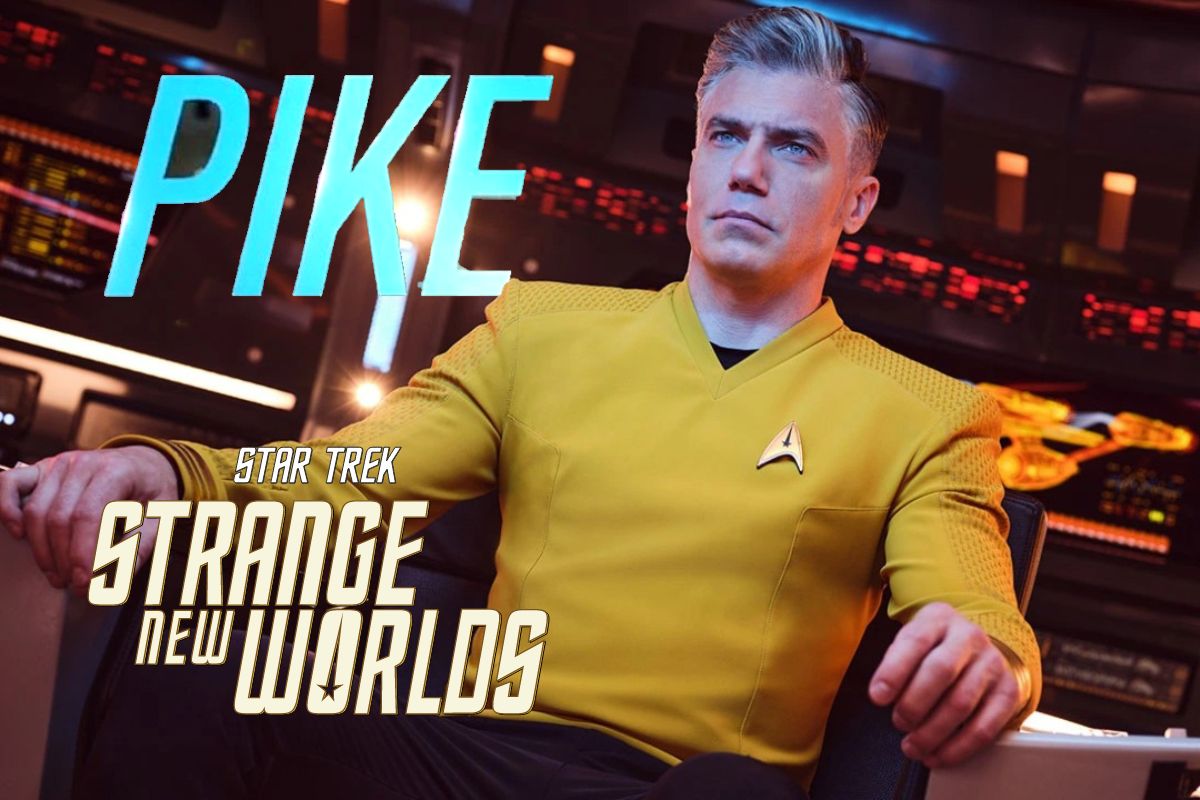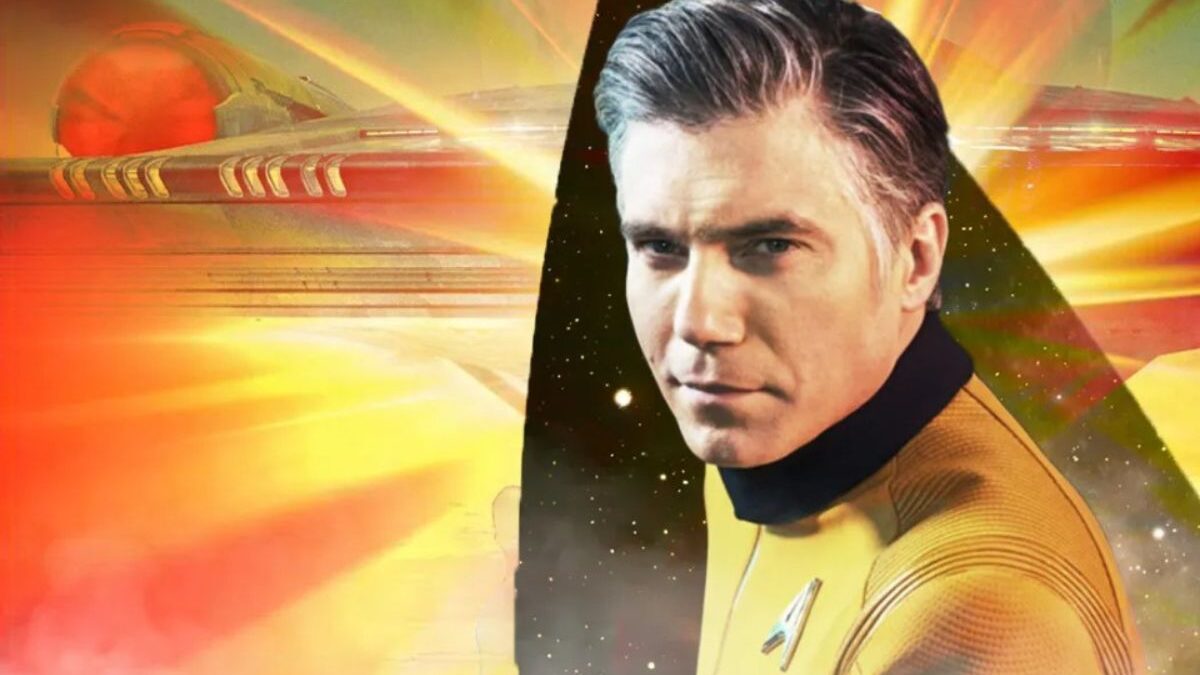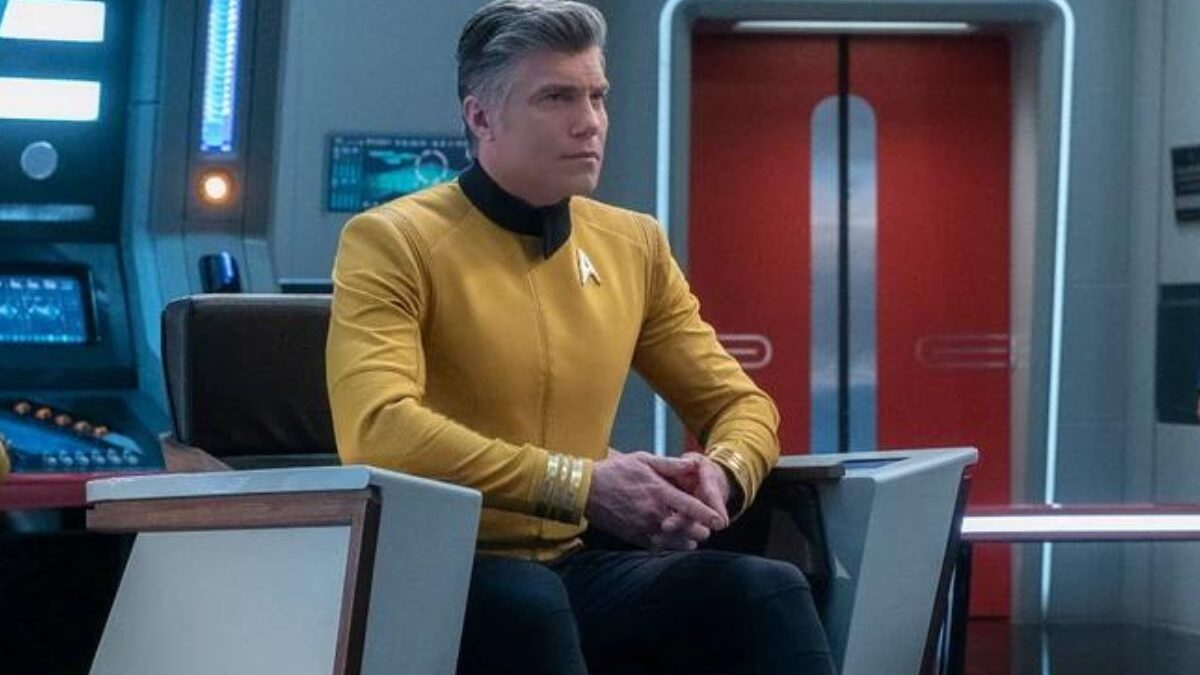
SNW – S-1 E-1 Captain Pike Gets Recalled tells the story of a bad first-contact scenario.
USS Archer is sent to Kiley 279 after signs of a working warp engine are identified. First Officer Una and her team lose contact, and Starfleet is keen on finding their whereabouts beyond Federation Space.
Star Trek ingeniously weaves Technology, Religion/Philosophy and Sociology, among many other things. SNW is no different. Episode – 1 narrates Captain Pike’s transformation. Captain Pike’s recall to the Starship Enterprise and the immediate rescue mission shatters many myths about life, death and everything else in between.
The subjective Turn
Captain Pike: I know exactly how and when my life ends. And I didn’t just see it; I felt it.
The Klingon Moon of Boreth had two things: A monastery and a rare ore that could displace temporal consciousness. Both were famously known for mediating ecstatic experiences. On a recent visit to Boreth, Captain Pike saw his gory death in a not-so-distant (?) future. Interestingly, he did not visit the monastery (a pointer to the Captain’s lack of religious affiliation). Nevertheless, Captain Pike’s experience at Boreth deeply affected him.
Captain Pike: I saw my own death, Spock.
Worse, he is haunted by gloomy images of his gory death. Life invites us to deeper levels of engagement with things that matter the most. Often, we choose to live on the surface level and not dive deep into the depths of existence wherein we explore questions of origin, meaning, morality, purpose and destiny.
Captain Pike was open to experiences (religious or otherwise) and took a subjective turn – to boldly go where he has never gone before.
Building walls is not the Answer.
Captain Batel: Whatever happened to you? Whatever’s got you questioning your return to command!
Captain Pike: It’s classified
Captain Batel: I’ve got deeper security clearance than you do
Captain Pike: Not for this!
Upon his return from Boreth, Captain Pike withdraws himself from active service. He becomes a recluse; before long, the celebrated captain is a poor shadow of the hero he once was. Starfleet’s Admiral recognises there is plenty to draw from Captain Pike’s extensive repository of acumen and experience in space. And yet, Captain Pike is reluctant.
“It’s not my problem”
“Send someone else”
The haunting images of his death cripple his confidence, his ability to make decisions and his willing service at Star Fleet, let alone lead the Starship Enterprise. It is only natural that he finds solace in solitude. The building of impregnable walls all around him was an easy defence mechanism. However, the recall to duty helps him see beyond himself.

It’s all about living and less about surviving.
Captain Pike: There’s surviving, and there’s living
Can you live fully and meaningfully if you know your tragic end? How do you live, make decisions, and above all find hope for the future? The Captain is tragically ill-equipped to stand up to a personal challenge. Sadly, the Captain can see life (and its possibilities) only through the lens of gloom and doom and understand it through the filter of doubt and confusion. You readily empathise with him, especially when he is emotionally exhausted.
The Moment of Truth
Ensign: (Enterprise is) All scrubbed up and good as new, Sir
Captain Pike: Wish it were that easy!
Spock: Are you yourself, Sir?
Captain Pike: Well, I am very much myself. That’s the problem.
Captain Pike is recalled to Enterprise to find out the whereabouts of Una and two astrophysicists. Strangely, this becomes an occasion to find himself. Captain Pike learns precious lessons from Spock, La’an Noonien Singh and personal encounters at Kiley 279. Captain Pike does not fear his impending death. He only fears for his ship and its crew. He is careful not to let his inability to make decisions jeopardise the crew’s safety. Spock finds the blind spot and attempts to save Captain from himself. He tells Captain Pike:
“Knowledge of death is vital for effective leadership.”
You would imagine Spock’s little chat would put things in perspective. And yet, for Captain Pike, doom and gloom still matter. His problem (to use his own words) is this: “I am very much myself. That’s the problem”.
Captain Pike learns from La’an Nonien Singh’s experience: “People survive things” (even in worst circumstances) and that “not believing you’re gonna die is what gets you killed”. The assignment to search for Una takes Captain Pike to a strange new world in crisis – a flash point in a prolonged civil conflict (with a subtle resemblance to his inner conflict). By now, the Captain understands how the future (with the power of possibilities) can be a help, not a hindrance.
Captain Pike has his moment of Truth. The future right up to the very end is what you make of it”. The Captain is able to resolve the prolonged civil war crisis (just as he resolves his own inner conflict). He ushers in a new era of peace and goodwill.

Life: Get an upgrade!
Spock: Suffering can be transformed into insight. You must seek out the good in knowing your death. Use it to be the man you most essentially are.
Captain Pike: What?
Spock: The Captain!
Captain Pike’s mind is clogged with fears of a ‘foreseen’ future. Gloomy images of his own death haunt him. Every attempt to escape its tyrannic hold is crushed with a replay of images of his death. While Captain Pike is held captive, entangled within a jumble of complex thoughts, Spock sheds light (without a flicker of emotion): Knowledge, experience, and insight can be used to become a better version of yourself.
Spock reminds Captain Pike (and the Star Trek audience) that he can use such personal experiences to become who you are. It always helps us to live – laugh, and love better if we live with an end-in-view.
Give your heart a Home!
Captain Pike learns important lessons about life itself. There are moments in life when we must hold our hopes, fears and aspirations to deep scrutiny.
Captain Pike: “Perhaps, somewhere, all your ends are written indelibly as mine. But I chose to believe that your destinies are still your own. Maybe that is why I am here to remind you of the power of possibility. Maybe that’s the good in seeing my future that I might remind you that right up to the very end, life is to be worn gloriously.”
Captain Pike’s recall shatters many myths, mainly what he thinks, feels and believes. He gladly re-joins the Enterprise and, more importantly, invites Kiley 279 to join the Federation and La’an Noonien Singh to join the crew.
Captain Pike: “Even in Space, growth, sometimes remarkable growth is possible.”
The Enterprise becomes his home as he finds inner strength “ to boldly go where no one has gone before. “Earth – the dust and sky is my hearth. But the Enterprise is my home. We can go forward together knowing that whatever shadows we bring with us and make the light brighter.”
(Episode 2), Uhura finds purpose.
Star Trek and 'God-conversations'









